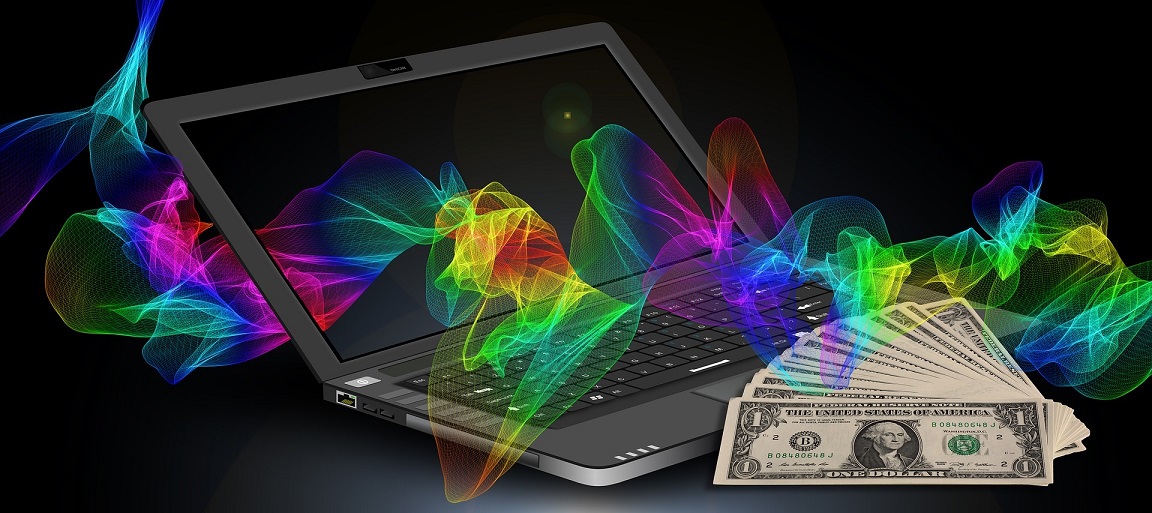
On March 12, 2020, on the eve of President Trump declaring COVID-19 a national emergency, the New York Times reported that something weird had happened on Wall Street as traders ran for cash. They were selling everything they could, including gold, commonly considered as a secure investment during turbulent times. Within the preceding three days, the price of gold dropped from $1,675 per ounce to $1,610 per ounce. A week later, in its headline, the Wall Street Journal proclaimed that “wild rush for cash rattles markets.” The price of gold sank to below $1,500 per ounce.
Why cash is better
We all enjoy the conveniences of a cashless economy. It is wonderful when everything runs fine. At tumultuous times, cash on hand is what we need. When in my local supermarket people were battling to buy toilet paper, and police were called to calm them down, I went to the ATM at the bank down the street. Nobody was there. I withdrew a little extra cash. It is hard to envision what hurdles COVID-19 might bring to us. But I know that the rustling of banknotes in my hand will get me what I might need.
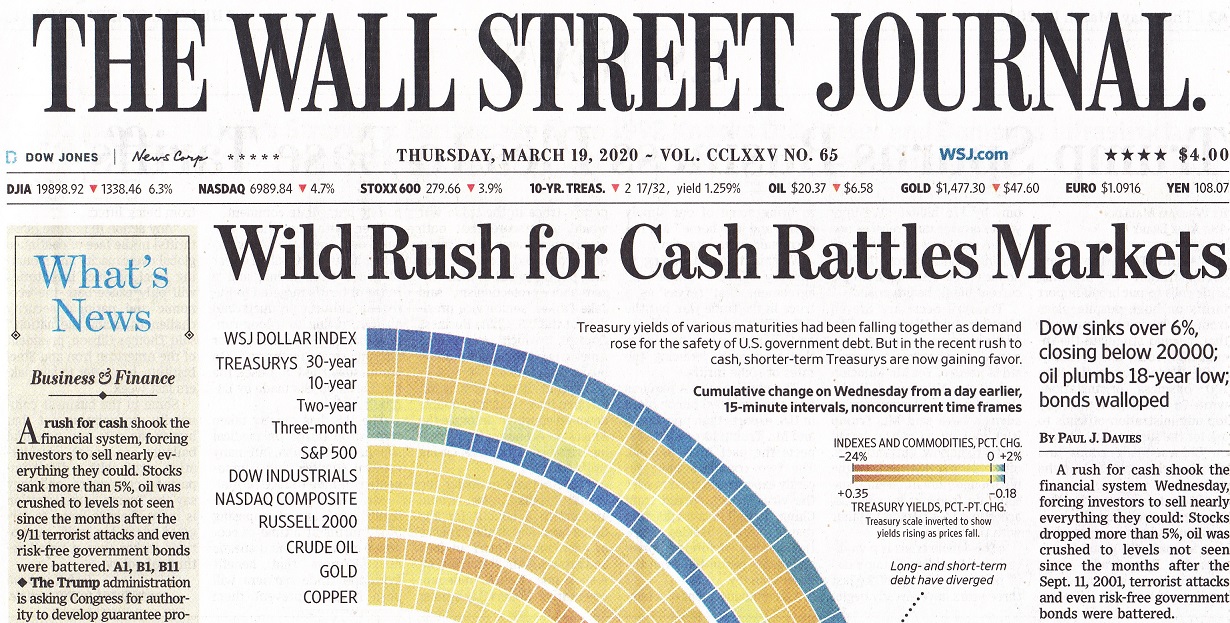
Money at our disposal, as in a checking account, is next in value to the real cash. Traders sell gold because they know that stocks lose their value due to the COVID-19 turmoil, but they will rebound as soon as the virus is restrained. They want money on hand to buy at low prices before the market turnaround. Professional traders are not the only ones seeing this opportunity for profit. As is natural in times of crisis, I have talked over the phone with more friends and family members than otherwise I do. A few of them mentioned that they took the opportunity of the market crash to deposit funds to their IRA or buy some stocks. It means that they had money available on hand. It usually happens that those with even a little extra cash on the side end up having more of it.
We hoard cash
One might expect that with electronic payments, there should be less cash in circulation. Recently, the Wall Street Journal reported that it is the opposite. More physical money is released, and then it disappears somewhere. It means that more than before, people hoard cash. Looking deeper into this unexpected attraction to cash, we can learn interesting things about the global economy, politics, and our finances.
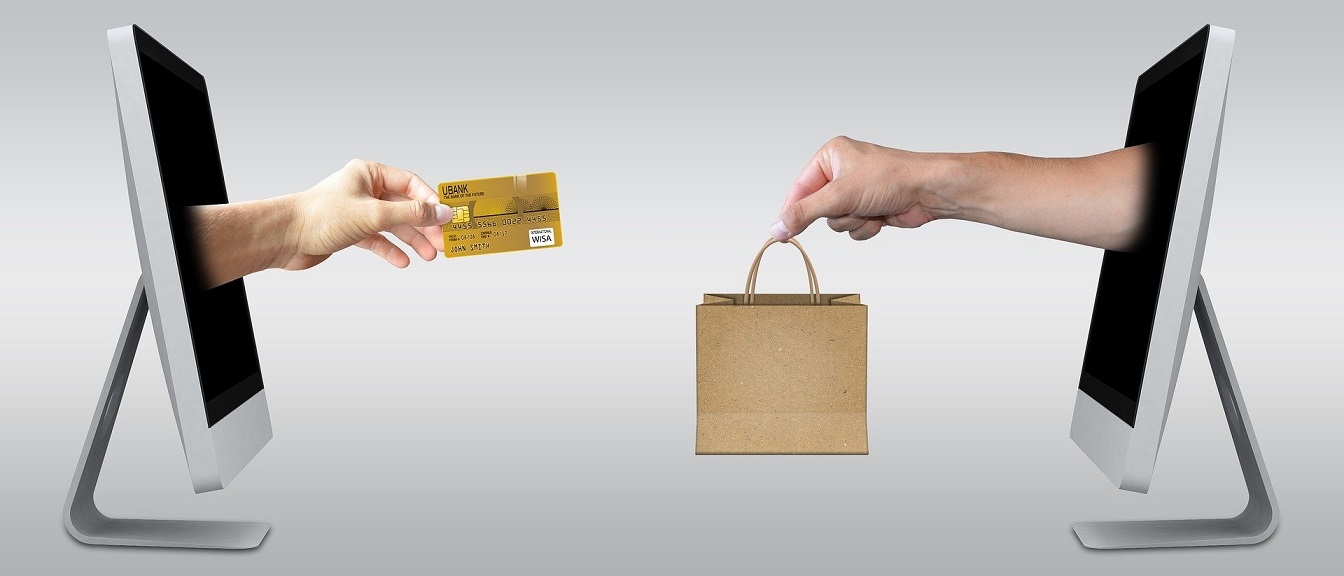
The report by the Federal Reserve Bank gives us some insight into what is going on. It is expected that the amount of cash in circulation increases with the growth of the economy. In the United States, it is reflected in an increased number of low-denomination banknotes. For example, compared to the end of 2014, by the end of 2018, there were in circulation about 16% more $20 bills, the most popular banknote denomination in the United States. The growth for other notes was similar or smaller, except for $100 banknotes, which soared in circulation at 32%, double the pace of the other notes. As the WSJ reports, experts estimate that about 75% of the $100 bills left the United States.
Everyone stashes cash
According to the same article in the WSJ, the problem is worldwide. Last fall, a German man was suing, unsuccessfully, his friend for losing about €500,000 stuffed in a faulty boiler. When he was on vacation, his friend fired the boiler to warm the house, burning the cash. The German Bundesbank estimates that Germans have €150 billion packed in attics or basements, buried in gardens or stuffed in envelopes. Bankers know about it because people bring for replacement money partially eaten by mice, rotten when buried, or in accidentally shredded envelopes. But when bankers ask the public, “Everyone says that they are not hoarding cash but the money is clearly somewhere,” one of the executives of the European Central Bank complained.
How much cash is out there?
No one knows. The estimated €150 billion hoarded by Germans is equal to about €1,800 (close to $2,000) per person. Australians, who experience the same phenomenon, count that as much as 2,000 of their dollars (about $1,200) per person is hidden somewhere. When reporting this, the governor of the Reserve Bank of Australia added that he does not have near that on hand. The mentioned article in the WSJ reports that bankers in New Zealand can account only for about 25% of the country’s cash.
According to the Federal Reserve Bank, the $5 bills have the shortest lifespan, a little below five years, whereas the least-used $100 notes last almost 23 years. But cash in the safe or in the shoebox can last much longer. It often is getting lost, as the owners might die without letting anyone know about a secret hiding space. It can be destroyed by fire and not reported. Mice can eat it, or it can rot. Australian bankers estimate that about 8% of cash is lost this way.
Where does the cash go?
Nobody is telling. Individuals keeping their savings in cash are the biggest mystery because it is hard to estimate how much they have. It is not much easier to find out how much cash that businesses keep as a reserve. For example, news reports say that Apple has about $200 billion in cash. Some of it is in short-term securities, easily convertible to cash, but a larger portion is invested in longer-term marketable securities. Looking at Apple’s financial statement, one can find out that by the end of 2019, cash and cash equivalents were only about $40 billion. Furthermore, “cash” on this statement can mean money in the business operational accounts, not physical cash. In short, besides CEO Tim Cook, there likely are very few people who know how much physical cash Apple has in its vaults in banks and offices spread all over the world. Bankers most likely can only guess.
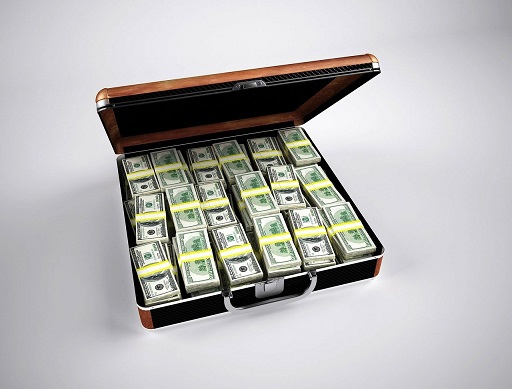
What pertains to Apple applies to all businesses. Publicly traded companies need to disclose their finances. Privately held corporations need not do it. Every business owner needs to be prepared to handle unexpected obstacles. It could be a fallout from an erroneous decision, a lawsuit, or a superior force such as COVID-19 that can threaten the survival of a business. In such circumstances often banks are reluctant to extend credit, not mentioning that sometimes money available in the bank might be blocked to secure potential liabilities. In such moments, nothing is as useful as physical cash that no one knows about.
Millennials stash cash too
As European bankers noted, people are mum about the cash they have in their drawers, shoeboxes, or bank safe deposit boxes. We can learn by accident that they paid with cash the down payment on their first mortgage. It happens more often than one might think, especially among first-generation immigrants.
Millennials are perceived as immature, nonconformist and irresponsible; hence, one might assume that they are reckless in handling money. It is exactly the opposite; millennials keep more cash on hand than older generations. They still might live with their parents and have unpaid college debt, but they already figured out that cash is king. This might be a facet of millennials that we still have to learn more about.
Shady businesses
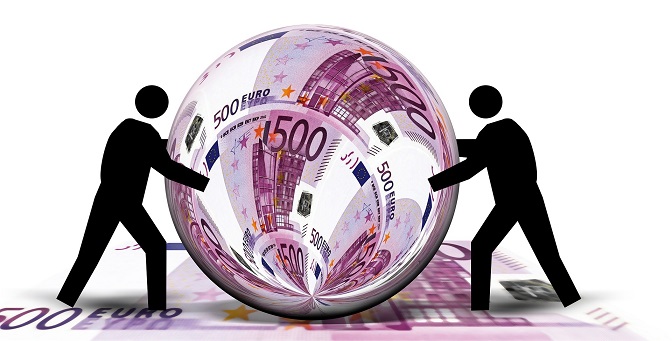
Vast cash reserves are a must for all dubious business operations. Organizations such as the Taliban or the Islamic State need to pay cash for arms. Companies trying to circumvent trade restrictions imposed on Russia, Iran, or Venezuela need to deal with physical cash if they do not want to get caught. The mentioned earlier report by the Federal Reserve Bank report reveals that many of those missing $100 bills ended up in Russia. Financial market commentators claim it is 661,500 pounds of it, which equals $31.5 billion. As they say, “If you are Iran, if you are Venezuela, if you are Russia, you either have been cut off, or can be cut off” from the international banking system. In such cases physical cash is the only way to conduct business.
Escape from despair
When reading reports about refugees from Syria or other places of misery, we often do not place enough attention to mentions of the cash that these people need for bribes, for smugglers, and to finance travel. An illegal crossing from Mexico to the United States is estimated to cost between $4,000 and $10,000 per person. Credit cards are not accepted – cash only. Tens, if not hundreds, of billions of dollars are stashed around the world just to facilitate the desires of millions of people to flee from their despair.
Criminals like cash too
It is self-evident but needs to be brought up. American $100 bills are most favored. European bankers noticed that criminals there like the €500 note too. Hence, they stopped issuing these banknotes in 2019, but they are still legal tender. The Swiss government has kept in circulation the banknotes representing 1,000 Swiss francs, now worth slightly more than $1,000.
War on cash
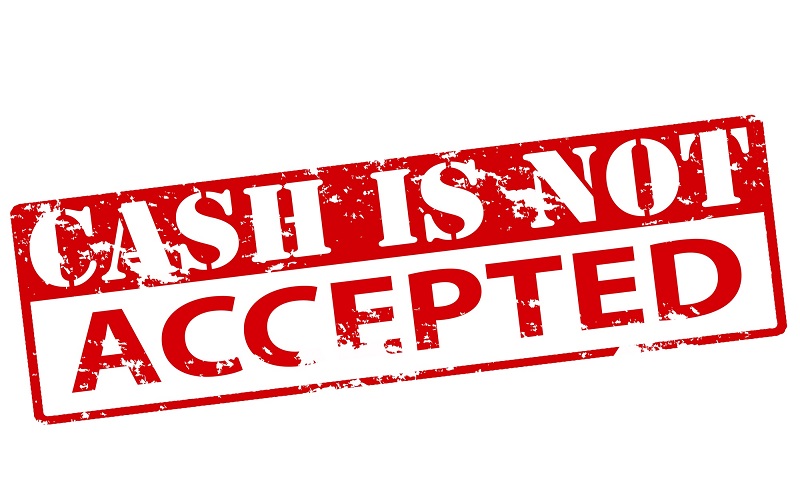
Eliminating €500 notes is part of a coordinated attempt by banks and governments to exert tight control over the money flow. Governments want to make it tougher for the shadow economy and criminals. With electronic payments, it is easier to track the money movement and enforce the taxes due. With the elimination of cash from most business operations, one can assume that a substantial percentage of cash transactions might be the illicit ones. For banks, cashless services are simpler and cheaper. For marketers, electronic transactions are gold mines of useful information. For service businesses, cashless operations simplify protection from theft of cash by employees. Hence, cashless operations are heralded as a sign of progress. It is not so good for customers.
Cash is freedom and privacy
Pedro Escudero explains this in his brief article on Medium. Our cash purchases are anonymous. Corporations like Amazon developed algorithms allowing them to predict what we might buy before we even realize that we need it. Sometimes it might be a useful nudge but leads to us buying what they want to sell, not what we need or want. The more we buy paying cash, the marketing is less accurate and simpler for us to reject.
Companies can use data about our electronic purchases against us. Recently, National Public Radio reported about records of automatic toll charges in Illinois having been released to a party unrelated to the person who charged the toll. For example, a stalker got information about his ex-girlfriend.
It could happen when an error, technical difficulties, frivolous litigation, or any other unfortunate turn of events can limit our access to money that we have in the bank or available on a credit card. The rule of bad luck is that we end up in such a predicament usually when another misfortune strikes us. The rustling of banknotes is the most straightforward remedy.
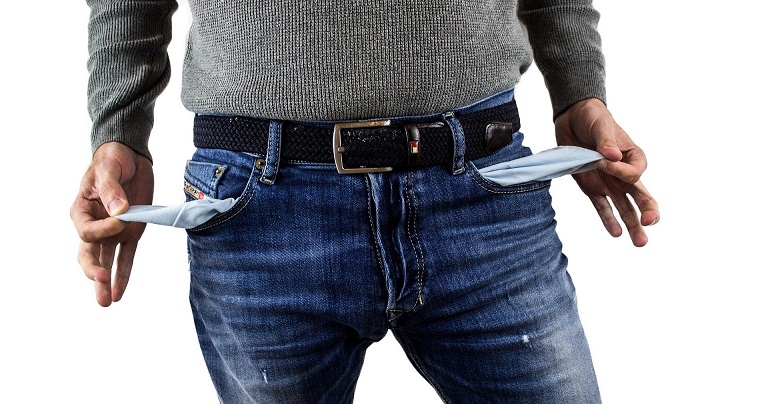
Lastly, the cashless economy leaves us at the mercy of an operator. Even the most advanced technological systems can fail, depriving us of access to our own money. Also, a centrally controlled system can be abused to limit our freedom. Some of us might be restricted from buying specified items, from buying in particular stores or certain areas. Some might say that this kind of abuse of power might happen in a totalitarian country, not in the United States. In my book, if there is technological availability, our politicians will find a justification to use it.
The unique role of the American dollar
Thanks to the size and relative stability of the economy of the United States, the American dollar became the currency of global trade. As mentioned above, it is favored as well by people involved in suspicious and purely criminal activities. It is considered a reliable deposit of wealth by people who might keep a few hundred dollars in an envelope, just in case, as well as people and organizations having tons of $100 bills stashed in the places only known to them.
The euro introduced 20 years ago, aspires to become a similar international currency. It already has taken from the dollar part of its role as global money. With the growth of the economy of China, the role of the Chinese yuan will increase. The WSJ article mentioned earlier indicates that the currencies of Australia and New Zealand are used for international trade, too, most likely in the region.
It means that the dominance of the American dollar as a global currency will dwindle. However, as long as the dollar is considered a secure haven for wealth, it will stay like that for decades to come. But if people around the world lose confidence in the stability of the political system in the United States, they will turn away from the dollar. This can trigger catastrophic inflation, meaning the end of the United States as we know it.
The magic of the $100 in the pocket
I was once assigned an adolescent man as a helper. He was a recent high school dropout from an impoverished family and living in a bad neighborhood. He did not have $5 on him to buy lunch. With a mentality of a loser, he already believed that the opportunities of America were far beyond his reach. Seeing some street smarts in him, I asked if he could somehow get $100 in cash. He said that he could. I asked him to keep this $100 in his pocket, so he could feel rich, knowing how many things he could buy. But, I tasked him with not spending this $100 unless he could refill the wallet, except in an emergency. I explained to him that the secret of feeling and becoming rich is in always having on hand a little extra cash.
It happened many years ago, and we worked together only one day; hence, I do not know how it turned out for this guy. But we met briefly in the office a few months after our initial encounter. He was upbeat. He pulled me to the side, opened his wallet, and showed me five $20 bills in it. “It works,” he said.

 Many tell us what to think. I ask my readers to be skeptical. Question me and others.
Many tell us what to think. I ask my readers to be skeptical. Question me and others. 